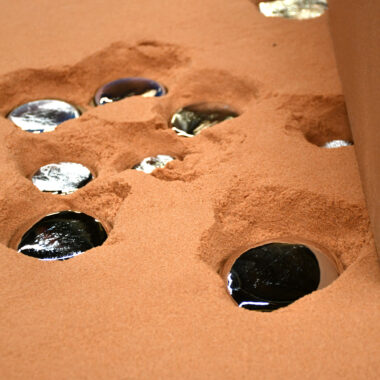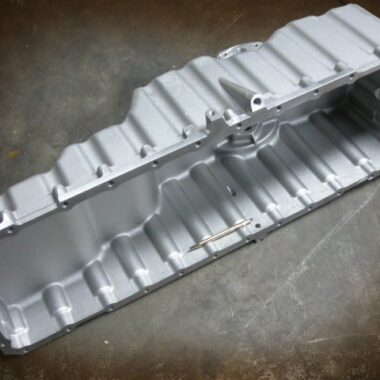Casting Aluminum Proficiency: Release Your Imaginative Potential
Casting Aluminum Proficiency: Release Your Imaginative Potential
Blog Article
The Definitive Handbook on Aluminum Spreading Provider
As markets continue to demand precision and top quality, comprehending the nuances of aluminum casting procedures ends up being extremely important. As we browse with this clear-cut manual, revealing sector trends and developments that shape the landscape of light weight aluminum spreading services, we are reminded of the unlimited opportunities that wait for those willing to immerse themselves in this detailed craft.

Understanding Aluminum Casting Processes
Discovering the intricacies of aluminum spreading processes reveals the accuracy and complexity associated with transforming liquified metal right into complex parts - casting aluminum. Light weight aluminum spreading is a thorough manufacturing method that includes the pouring of molten aluminum into a mold to produce a wanted form. This procedure begins with the careful prep work of the mold and mildew, which should be crafted with accuracy to make certain the end product's precision. When the mold and mildew prepares, the light weight aluminum is heated to its melting point and poured right into the mold and mildew cavity.
During the cooling process, the aluminum takes the shape and strengthens of the mold and mildew. What complies with is meticulous workmanship to eliminate any type of flaws and refine the component to fulfill the called for specs. This process demands a keen eye for detail and a deep understanding of metallurgy to make sure the last product's top quality and integrity.
Understanding the nuances of light weight aluminum spreading procedures is vital for producing top notch parts that satisfy market requirements and demands. From aerospace to automobile industries, the accuracy of light weight aluminum spreading plays an important function in making resilient and reputable components.
Vital Tools and Equipment
What tools and equipment are indispensable for accomplishing precision and efficiency in light weight aluminum spreading processes? To make certain successful aluminum spreading, numerous vital devices and equipment are required. By making use of these devices and tools efficiently, light weight aluminum casting services can accomplish high accuracy and efficiency in their processes.
Quality Assurance in Light Weight Aluminum Casting
Guaranteeing consistent top quality requirements is critical in aluminum spreading processes to meet market demands and customer assumptions. Quality control in light weight aluminum casting entails a systematic strategy to surveillance and examining every stage of the casting process to guarantee the end product's stability. To achieve this, different methods are used, such as visual inspections, dimensional checks, non-destructive testing, and material evaluation. Visual examinations are conducted to determine surface flaws like fractures, porosity, or incomplete fills up. Dimensional checks make sure that the spreading satisfies precise requirements. Non-destructive screening methods like X-ray, ultrasonic, or dye penetrant evaluations can spot inner problems without damaging the part. Product evaluation with spectroscopy or chemical screening verifies the structure of the aluminum alloy used (casting aluminum). By executing stringent top quality control procedures, aluminum spreading service companies can provide parts that comply with the greatest standards of efficiency, top quality, and dependability, ultimately pleasing both industry policies and customer needs.

Making Best Use Of Efficiency and Productivity
To boost operational efficiency in aluminum spreading solutions, optimizing efficiency and performance is critical for conference manufacturing needs and preserving competitive benefit in the industry. Applying lean production principles, such as decreasing waste and simplifying procedures, can dramatically enhance overall performance. Using sophisticated innovation, like computer-aided layout (CAD) software program and automated systems, can enhance performance by reducing manual work and boosting accuracy.

Teaming up very closely with vendors to make sure a consistent circulation of top notch materials and executing durable organizing and supply monitoring systems are also essential techniques for making the most of performance in light weight aluminum spreading services. By concentrating on these locations, companies can achieve higher degrees of efficiency, satisfy consumer demands effectively, and remain ahead in an open market.
Sector Trends and Developments
In response to the progressing landscape of light weight aluminum spreading services, remaining abreast of market fads and advancements is critical for preserving an one-upmanship and meeting the vibrant demands of the marketplace. One remarkable pattern in the aluminum casting industry is the increasing concentrate on sustainability and environmental responsibility. Companies are embracing greener methods, such as making use of recycled aluminum and applying energy-efficient processes, to line up with consumer expectations and regulative needs.
In addition, improvements in modern technology are changing light weight aluminum casting processes. The combination of automation, robotics, and artificial intelligence is improving production, improving precision, and lowering lead times. 3D printing is likewise making waves in the market by enabling intricate geometries to be created with better effectiveness and cost-effectiveness.
Furthermore, there is an expanding focus on customization and product customization. With consumers looking for special and tailored products, aluminum spreading services are adjusting to provide even more adaptable production services. By her comment is here embracing these market trends and advancements, business can position themselves for success in a swiftly progressing market.
Conclusion
To conclude, the handbook on light weight aluminum spreading services supplies an extensive introduction of the procedures, devices, quality control procedures, efficiency techniques, and sector fads in the area. By comprehending these key elements, services can Resources boost their casting procedures, ensure high-quality products, and stay competitive on the market. This definitive manual serves as an important resource for those entailed in light weight aluminum casting services.
As markets proceed to demand accuracy and top quality, recognizing the subtleties of aluminum casting processes becomes paramount (casting aluminum). Light weight aluminum spreading is a careful manufacturing method that entails the pouring of molten light weight aluminum right into a mold and mildew to create a desired form.Ensuring regular high quality requirements is vital in light weight aluminum spreading processes to satisfy market requirements and client assumptions. Quality control in light weight aluminum casting entails an organized method to tracking and examining every stage of the spreading process to ensure the final item's honesty.In final thought, the manual on aluminum spreading services offers a comprehensive summary of the procedures, devices, high quality control actions, effectiveness techniques, and industry patterns in the field
Report this page